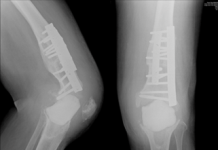Dr Simon Blakey discusses JETSCREEN and research into more efficient screening of aviation fuels, in turn hoping to reduce the substantial investment required
Low-carbon transportation fuels in aviation such as direct sun-to-liquid alternatives and others will be vital for the EU Roadmap towards a more sustainable, competitive and secure energy system in 2050. This is where JETSCREEN – a project involving University of Sheffield mechanical engineer and fuels expert, Dr Simon Blakey – aims to help, paving the way to more efficient screening of aviation fuels and speedier approval of renewable sources.
The EU has set ambitious targets for at least 40% of aircraft to be powered by low-carbon sustainable fuels by 2050 as part of broader emissions reduction efforts across the transport sector. To achieve this goal, novel fuels need to be developed, derived from renewable non-fossil sources while meeting stringent aviation safety and performance requirements.
To help establish a sustainable alternative jet fuel (SAJF) industry in Europe, the EU-funded JETSCREEN consortium – involving leading research institutes, major aerospace and engineering firms and innovative SMEs including the University of Sheffield – is developing tools and methods to screen and assess alternative fuels using small-scale, low-cost experimental testing and advanced computer-modelling techniques.
The goal is to reduce the substantial investment needed to seek approval for a new alternative fuel under the ASTM D4054 international standardisation process, a rigorous procedure that complies with the aviation industry’s very high safety requirements.
“Currently, not a single EU company is continuously producing sustainable alternative jet fuels. Most SAJF production pathways stem from US-based funding, research labs and companies,” says JETSCREEN coordinator Bastian Rauch of DLR in Germany.
“Fuel impacts a wide range of aircraft components and system properties, sometimes in conflicting ways. A fuel composition that has a positive effect on the fuel system might have a negative impact on emissions, for example. New fuels therefore have to be thoroughly tested: it’s a very interdisciplinary, time-consuming and costly process.”
Optimising promising fuels
The JETSCREEN consortium is addressing that challenge. The partners are developing small-scale experimental processes for a variety of alternative fuel candidates, such as fuels derived from organic oils and sugars, with different compositions and properties. These latest generations of bio-derived fuels are more sustainable than previous versions as they are derived from sources that do not compete with food supplies and are not major consumers of prime agricultural land or fresh water.
The JETSCREEN experiments are used to understand the effects of the different properties of alternative fuels, with the data captured in standardised formats and stored in a database with other information from scientific literature and prior studies. These data, in turn, help scientists understand the basic physical phenomena of the fuel composition, thereby underpinning the development of predictive modelling tools to screen and assess a specific fuel’s impact on the performance of the fuel system, combustion and emissions.
“Moreover, once the sequence of models exists to derive a relationship between fuel composition and system performance, then this process can be reversed to optimise the fuel and test different formulations for features such as targeted performance or emission reductions,” Rauch explains.
Faster approvals, reduced risk
The ultimate aim of the JETSCREEN project is to use the tools and methods to provide candidate fuels with a certificate of analysis containing key data that can assist the approval process. This would reduce the risks for fuel producers and investors in deciding to launch an application for approval of a new fuel type or blend, supporting innovation in the jet fuel sector, which is dominated by large oil- and technology-licensing companies that can afford the high costs involved.
The JETSCREEN approach is also set to contribute to the future design of fuel-flexible components for aircraft. It will lay the foundations for further research into methods that would optimise fuel and aircraft systems to achieve even greater reductions in emissions, as well as improvements in fuel performance and sustainability.
“We believe investment risks can be lowered by providing these tools,” Rauch says. “Furthermore, small innovative start-ups can receive much-needed early feedback on performance to help develop their products and obtain funding.”
Support from Sheffield
Dr. Simon Blakey is a Senior Lecturer in the Department of Mechanical Engineering and Director of the Low Carbon Combustion Centre, a University of Sheffield initiative that aims to be one of Europe’s leading facility for novel combustion and low carbon technology.
The LCCC is committed to providing industry with expert research into power, fuel, energy efficiency and, ultimately, the reduction in carbon emissions – hence its involvement in the JETSCREEN consortium through Dr Blakey.
“Much of my research activity has focused on the technical suitability of alternative fuels for the aviation sector and how we can better assess potential new fuels and fuel compositions as fit for purpose,” explains Dr Blakey, who is also part of Energy2050, one of the UK’s largest energy research institutes which is also based at the University of Sheffield.
“An aim of my area of research is to help innovative and less polluting new fuels reach market in a shorter space of time – the longer a fuel is being tested, the longer more polluting fuels continue to be the norm.
“It can take years for such new fuels to be approved and this is why I am so pleased join consortium colleagues from both industry and the research sectors to develop knowledge-based screening tools.
“These will not only support the streamlining of approval processes, but they will also be used to help assess combustion system compatibility, quantify added value and optimise fuel formulation. It is a major step forward for the industry.”
To find out more about the JETSCREEN project, visit www.jetscreen-h2020.eu








